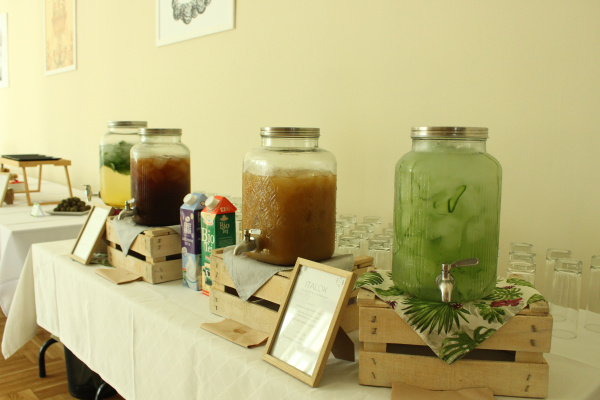
Just this year (in 2023), the EU 1.5° Lifestyles project team will organise close to 20 project events: various thinking labs, Delphi workshops, a European stakeholder workshop, etc., in different countries, involving altogether quite a few people. Therefore, our impact can be big, not just in terms of what we talk about at the events, but also related to how the events are organised and how their delivery and logistics influence our participants as well as those involved in making them happen (i.e. caterers, venue managers, etc.).
Do they strengthen or weaken our message? Do they support the mainstreaming of 1.5° lifestyles or not really?
Recognising the importance of event organisation, the EU 1.5° Lifestyles project laid down green and low-carbon principles for them, and the team uses a checklist to help put them into practice. We aim to reduce our overall project carbon footprint and environmental impact – as well as to educate and influence – through our events. However, how do we do it? Below, we will present the specific example of project partner GreenDependent Institute (GDI) in Hungary.
REDUCE and increase awareness
As a great part of an event’s carbon footprint is determined by participant travel, it is important to find a venue that can be easily accessed by public transportation and even bikes. In addition, it is a plus if the venue itself is run in an environmentally conscious way, or even if not (yet), it has natural lighting, adjustable heating and cooling, selective waste collection, and is open to catering that uses non-disposable dishes and cutlery and food that is not pre-packaged. We as organisers can take additional steps by taking a tape and felt pens with us so that participants can mark their cups and glasses in order to reduce dishwashing needs (this, at the same time, helps participants learn each others’ names).

As for catering, since food is the other largest contributor to event footprints, it is important to find a local organisation that can deliver local, seasonal and plant-based food in re-usable dishes. Again, it is a plus if the service provider is already “green”, but if not yet, we have a good opportunity to educate them through explaining clearly what we need. If we are worried about serving only plant-based food, e.g. because our country’s traditional diet includes a lot of meat, we could provide some meat-based options. However, after clearly stating to participants that we will serve a vegetarian meal, we can experiment with asking them “Do you require meat for your meals?” when registering rather than the conventional way of asking who is vegetarian…
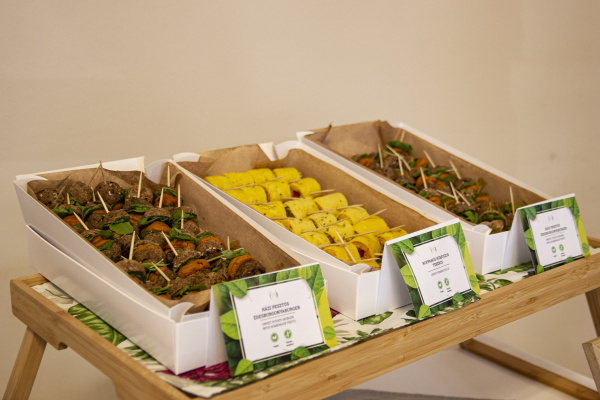
In addition, at GDI we always avoid bottled water and other bottled drinks (except for milk and its plant-based alternatives), but serve drinks in bigger containers or jugs from which participants can fill up their own cups and glasses. For tea and coffee, we ask the caterers to provide fair-trade and organic varieties. We always offer to assist them with procurement if needed (e.g. through sharing our own sources, showing them the relevant product labels, etc.).
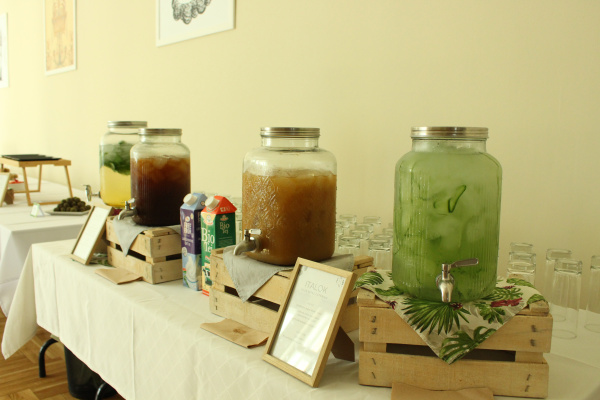
We also pay particular attention to reducing the amount of food waste to minimum. In this regard:
- we keep in close contact with the caterers regarding participant numbers so that the appropriate amount of food can be provided;
- we ask caterers to serve smaller portions or provide participants the opportunity to select the size of their own portion (i.e. self-service);
- we provide re-usable boxes for participants to take home the leftover food, which is especially welcome by those that need to take a longer journey home;
- in some cases, we donate the leftover food to organisations working with refugees or homeless people.
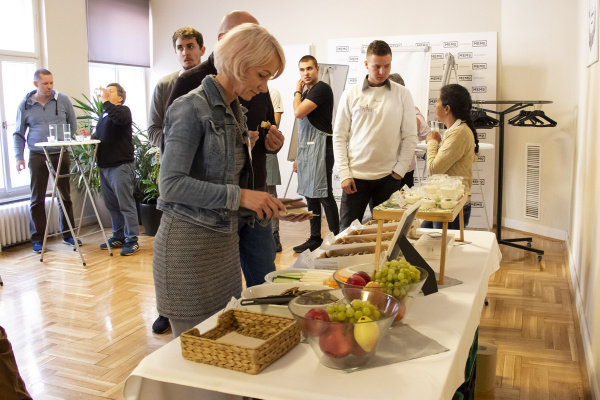
As for the various bits and pieces needed for events – name tags, paper, pens, etc. – we do our best to use as little as possible and select eco-labelled options where available. We also recycle event and campaign materials: e.g. use posters from past projects to write on in workshops. Obviously, printing for events is done on recycled and eco-labelled paper, which we require from print shops as well, in addition to using environmentally friendly ink.
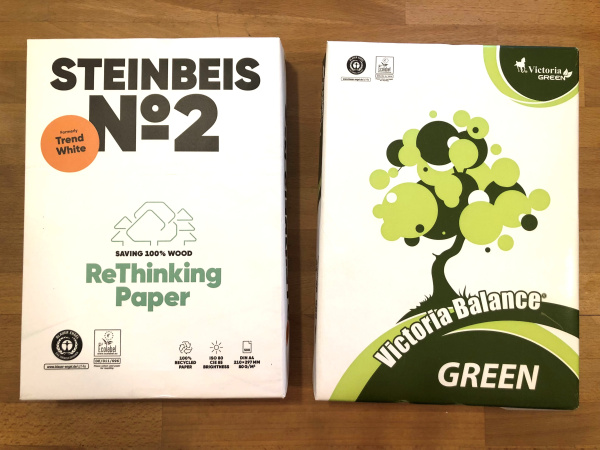
For nametags, we use pieces of cut-up paper with wooden pegs. For events that are more informal, we ask participants to write their own names on the paper, for formal events we print name cards, but still use the wooden pegs. At the end of events, we collect the pegs for reuse at future events – but we sometimes let participants take them away to inform their organisations that this is a good alternative option to using plastic name badge holders.
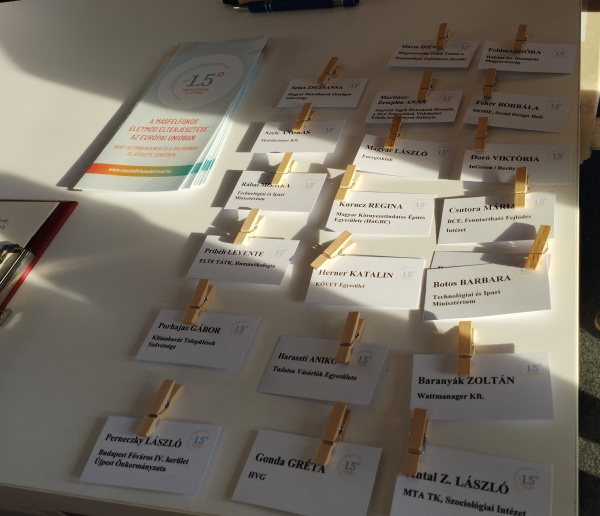
At registration, we collect travel information from participants, i.e. from where and using which means of transport they arrived to our event. This is necessary for calculating the event carbon footprint, but it is also a nice awareness-raising tool, and often results in some discussion with participants. Sometimes it is possible to already collect this information when pre-registering them, or we do the registration electronically – either for health reasons (cf. Covid regulations) or to make it faster.
In addition, we encourage participants to travel together in case car travel is unavoidable and they live close to one another. We then mark this on the registration sheet as well to avoid double calculating their journeys.
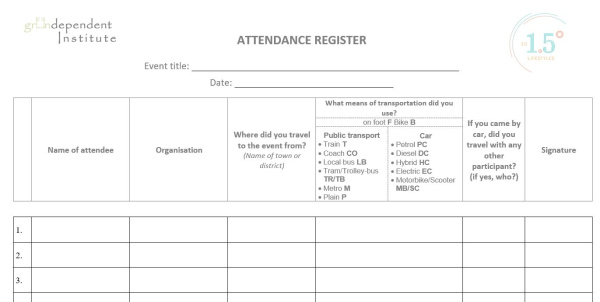
CALCULATE and inform participants
In order to monitor the climate change-related environmental impact of our events, we calculate all of GDI’s event footprints using a calculator that we co-developed with another expert organisation. We also developed templates for collecting the data, and as we need the cooperation of our event organisation partners – caterers and venue managers -, we often spend some time working with them to explain which data and why we require for the calculation. We have found that this is a good way to raise their awareness about low-carbon event organisation.
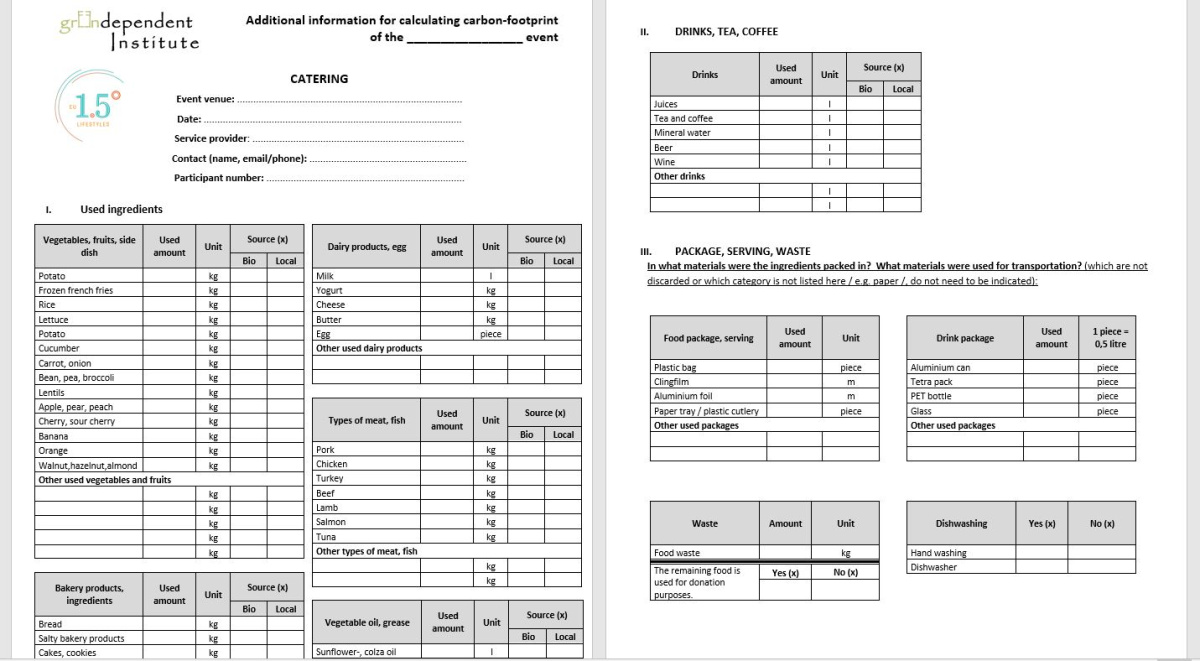
The footprint is calculated in tons of CO2 emitted considering the impact of the event in four areas: the travel of event participants; direct energy use at the event; catering; and event organization. Participants are always informed about our reduction efforts not only to educate them but also to ensure they will cooperate as much as possible during the event (e.g. agree to mark and reuse glasses). They also receive information about the footprint, at the event usually an estimate, and following the event the exact figures.


TAKE RESPONSIBILITY and involve participants
Once the carbon footprint of the event has been calculated, GreenDependent determines how many young fruit trees need to be planted to compensate for it. We share this information with participants as well, emphasizing that reduction efforts are an essential first part of the process, but since zero environmental impact events are not possible, we take responsibility for the impact by planting trees – with their involvement if possible. In the majority of cases, participants are more than happy to receive and then plan fruit trees, of which they are always notified in advance. For example, at the EU 1.5° Lifestyles Citizen Thinking Lab organised in October 2022, participants received trees to plant after being asked whether they have a place to plant them at.
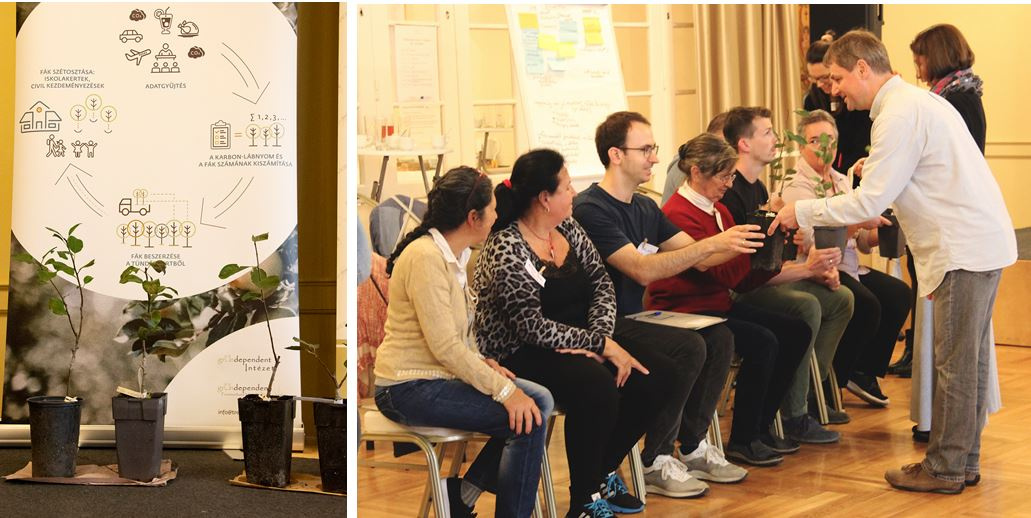
There are, of course, events where participants cannot be involved in planting for various reasons, like in the case of the EU 1.5° Lifestyles Stakeholder Thinking Lab organised in December 2022. In such cases, GDI plants the trees in school or socially responsible non-profit gardens in the framework of its TreeDependent programme. This way the young trees planted do not only compensate for the event footprint, but also contribute to the achievement of additional sustainable development goals such as
- preserving biodiversity,
- creating local food provision opportunities, and
- serving a social development goal (e.g. education, providing employment for socially disadvantaged groups).
The trees come from a so-called Tündérkert (Fairy Garden), a nursery specialised in collecting native trees that is located in Zala County, West Hungary. Their mission is to preserve and promote (or rather “re-introduce”) native Hungarian fruit tree species.
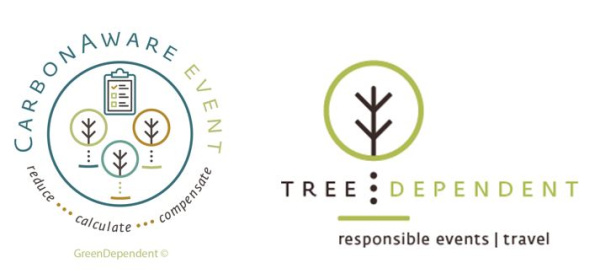
In summary, organising our events in a green and low-carbon way not only helps make our message more consistent by letting participants experience 1.5-degree lifestyles “in action” and showing how theory can be put into practice, but also provides a great opportunity to extend our impact through engaging with venue managers, caterers and potentially other service providers.
Of course, we apply the same principles to organising project meetings. GDI has yet to host the team in Hungary; however, we always travel to meetings (as well as conferences) by train, at times even together with one of the Hungarian members of the advisory board (with the other member participating virtually).
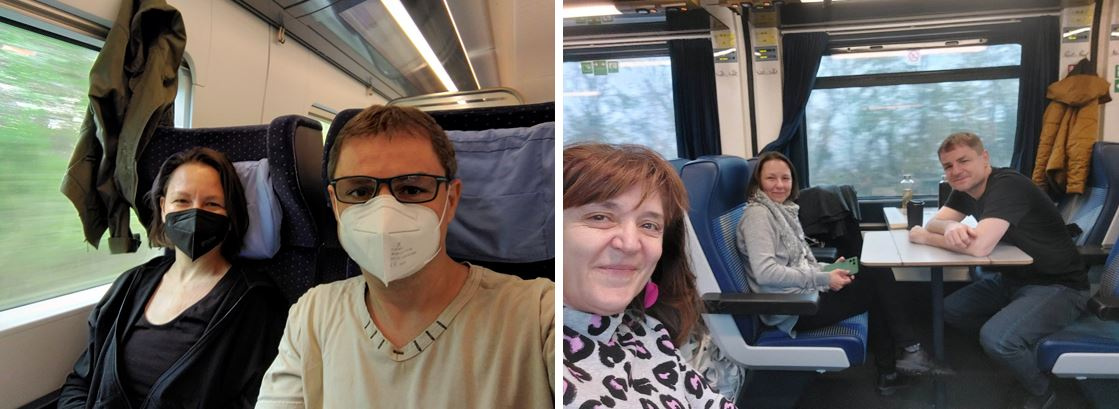
Edina Vadovics with Eszter Csiki, GDI
Pictures and figures: GreenDependent ©

